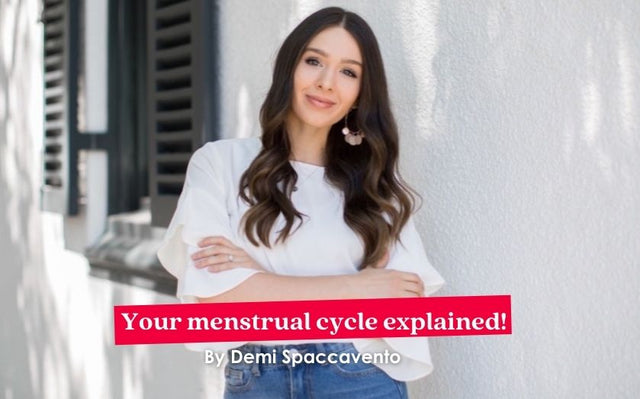Feiya Hu is a medical student, public speaker, pole dancer, and an advocate for anti-racism, mental health and menstrual health in the UK. In every aspect of her life she aims to speak up to empower minority groups and is not afraid to have conversations around uncomfortable but necessary topics, sharing stories via Instagram.

After having experienced a lot of anti-Asian hate crime throughout her life in the UK and especially during the pandemic, Feiya co-founded a non-profit organisation, Racism Unmasked Edinburgh, which is an online community giving a platform and a voice to East and Southeast Asians in the UK, meanwhile providing educational material to raise awareness for allies to the cause.
Feiya has worked alongside Irise International, a menstrual health charity who focus on research, advocacy and policy development, and invest in period equality all over the world. She has appeared on discussion panels with medical professionals, speaking about her experiences with pre-menstrual syndrome and giving action points on how she feels healthcare should improve for people who menstruate.
Q: Can you tell us about the challenges you experienced seeking support and care for a menstrual health issue?
The most difficult thing about seeking help for menstrual health issues are the fact that the topic is so taboo in our society as a whole. It is not spoken about freely and without shame; we don’t really hear a lot about it at school and it is not often something which is explored on platforms such as on TV and online – this has led to a lot of people who menstruate feeling isolated whenever they feel like they are struggling with a certain aspect of their menstrual health.
For a long time I struggled with irregular, heavy, very painful periods and PMS symptoms, and it took me about 10 years to learn what is normal and what is considered a problem, because it was often swept under the rug and I was told that I should just ‘suck it up’, because ‘everyone deals with it’. This made me think that my monthly suffering was a necessary part of my life and that if I felt like I couldn’t cope then I was just being lazy or weak.
A few failed attempts from getting help from my GP, who said that what I was experiencing was normal and sent me on my way, I gave up and sought help from the sexual health center in my city. They spoke to me for almost an hour listening to my experiences and talking me through all the different methods of contraception that could help relieve my symptoms. I couldn’t believe how relieved and validated I finally felt, now that people were taking me seriously. I feel very grateful that I managed to find somewhere that took me seriously, as I know a lot of people who menstruate struggle for years, even decades, to find the right kind of help. According to Endometriosis-uk.org it takes an average of 7.5 years to get a diagnosis of endometriosis and that is just one example.
Q: What prompted you to take action to improve menstrual healthcare in the UK?
Often health professionals are ill equipped to speak about periods from a person centered point of view – at medical school we are briefly taught menstrual health information as a one size fits all, whereas in real life this is definitely not the case at all.
My experience at the sexual health centre where they took so much time and care made me realise that this experience should be the norm, and not a rarity.
Looking online and speaking to people around me, it is astounding how much we don’t know about our bodies, due to the lack of education from school and also lack of accessible and trustworthy information that is available.
It really is shocking how different it is when you read about menstrual health from a healthcare website, compared to when you read people’s responses and experiences on a forum or discussion board.
Q: What do you think needs to change and why?
I think the bottom line is destigmatisation. I have seen a lot of positive changes recently with more work done online and in media to combat the taboo surrounding periods and through engaging more with that content, I feel like it has already had a huge positive impact on me. I hope for that to be the norm, and that hopefully one day people who menstruate don’t feel like they have to apologise for bringing up the topic of menstrual health, or feel like they have to struggle alone.
Destigmatisation is crucial in helping more people get the help they need with less delay and with as little barriers as possible. Suffering from a menstrual health condition should no longer be seen to be ‘normal’ or ‘just a part of being a menstruator’.
Q: What advice do you have for doctors and other professionals who might be involved in supporting people with menstrual health concerns?
Menstrual health is so varied – more care needs to be taken when communicating with a person seeking help for their menstrual health, because experiences are so different to one another and it is not a one size fits all!
Engage in the conversation – a lot can be learned from speaking to and listening to the experiences of people who have had experiences with menstrual health problems, and really highlights the areas that have been positive as well as the areas needing to be improved to help more people in the future. I have learned so much through people sharing their experiences with me and it has given me a much wider understanding, outwith my own personal experiences and learning.
This kind of person centered approach is crucial in making sure people feel like they are being taken seriously, will allow them to feel comfortable in seeking help and will get them the help they need much faster than before.
Q: What advice do you have for young people going through what you experienced?
Trust your body and your intuition! After all, you know your body best and you know when you are experiencing something which is not normal. So if you feel like something isn’t right and it is having a significant impact on your life, then you are completely valid and it is worth seeking help for – and don’t let anyone else tell you otherwise!
When seeking advice and support it is worth also having a look on online forums and websites especially dedicated to having an open conversation around menstrual health – this way you can see that many others have had similar experiences to you and may help you feel validated and less alone.
Hit up your local sexual health clinic if you are needing help finding the right contraceptive method for you – their approach is very thorough and they can answer all of your questions!
Q: What do you think of period underwear and the impact it has on menstrual health industry?
Period underwear is awesome! Not only does it get rid of all of the plastic waste we produce over our lifetimes through the use of tampons and towels etc, they are also so comfortable and absorbent, meaning I can put a pair on at the start of the day and not have to worry about it until I come home again, like any regular underwear! They honestly make me forget that I am on my period.
I was very skeptical at first because I wasn’t sure about how they would work and how to wash them – but now I can’t look back because it is so much easier.
I think that period underwear has revolutionised the menstrual health industry – more and more people are opting for this more sustainable method and often the social media campaigns are very body positive and feel very real, which is a comforting change to the super sterile and non-realistic depiction of period products in the past. Through this change I have noticed more and more conversations around me about periods, and I feel like it has allowed a very positive change in many aspects.









